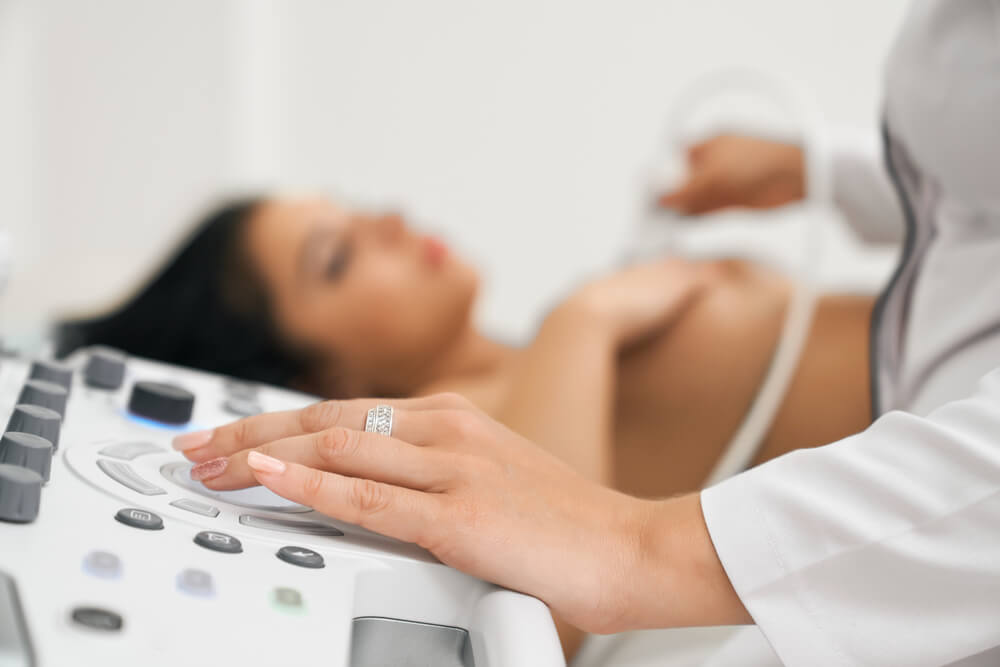The skin on our breasts is delicate and sensitive, and it is important to take good care of it to keep it healthy and maintain its appearance. In this article, our experts at Breast Care Center Miami will explore some tips and techniques for taking care of your breast skin, including how to protect it from the sun, keep it hydrated, and prevent irritation and chafing. Whether you are looking to maintain the health of your breast skin or improve its appearance, these tips will help you take the best possible care of your breasts.
Top 5 Tips for Healthy, Delicate Breast Skin

1. The Right Kind of Moisturizer Is a Must
When choosing a moisturizer for your breast skin, selecting a product that is suitable for your skin type and any specific concerns you may have is essential.
For example, if you have dry or sensitive skin, choose a moisturizer that is formulated for those skin types and is free of fragrances or other potentially irritating ingredients. On the other hand, if you have oily or acne-prone skin, choose a moisturizer that is oil-free and non-comedogenic, meaning it does not clog pores.
It is also a good idea to choose a moisturizer with ingredients known to be beneficial for the skin, such as antioxidants, peptides, and ceramides.
Finally, ensure to apply the moisturizer according to the instructions on the product label and be consistent with its use to see the best results.
2. Stay Away From the Direct Sunlight
Protecting the skin on your breasts from the sun is essential, as excessive sun exposure can cause premature aging, sunburns, and even skin cancer. One way to protect your breast skin is to avoid sunbathing. Instead, try to stay in the shade or cover up your chest area with clothing, a wide-brim hat, or an umbrella when you are outside during peak sun hours.
If you must be in the sun, make sure to apply sunscreen with a high SPF to your breasts and any other exposed skin. It is also a good idea to wear a swimsuit or shirt with built-in UV protection when swimming or participating in water sports. By taking these precautions, you can help protect your breast skin from the harmful effects of the sun. Apply a soothing lotion immediately if you notice any redness on your breast skin.
3. Forget About Crash Dieting
Crash dieting, or rapid weight loss through drastic caloric restriction, can negatively affect the skin and overall health. When the body is deprived of essential nutrients, the skin can become dry, flaky, and prone to irritation and inflammation. This can be especially problematic for the skin on the breasts, as the breasts have a thin and delicate skin layer that can be easily damaged, even causing breast skin infections.
Crash dieting can also lead to a loss of elasticity in the skin, resulting in sagging or drooping breasts. To protect your breast skin and maintain overall health, it is essential to avoid crash dieting and adopt a balanced and nutritious diet that supports healthy weight loss instead. This may involve seeking the guidance of a healthcare professional or registered dietitian.
4. Follow a Nutritious and Balanced Diet
As stated, eating a nutritious diet can help protect the skin on your breasts and promote overall skin health. The skin is the largest organ in the body and requires a variety of nutrients to function properly. Some essential nutrients for skin health include vitamins A, C, and E, as well as minerals like zinc and selenium. These nutrients can be found in various foods, including fruits and vegetables, whole grains, nuts and seeds, and lean proteins. Incorporating these nutritious foods into your diet can help keep your skin healthy and radiant, including the skin on your breasts.
In addition to eating a healthy diet, it is also essential to stay hydrated by drinking plenty of water and avoiding sugary drinks, as proper hydration is necessary for maintaining healthy, youthful skin.
5. Do Your Best Not to Smoke
Smoking harms overall health and can negatively affect the skin, including the skin on the breasts. Smoking can cause the skin to become dry and dehydrated, leading to a loss of elasticity and premature aging. It can also worsen the appearance of wrinkles and fine lines and contribute to a dull, uneven skin tone.
In addition, smoking can increase the risk of certain types of skin cancer, including breast cancer. Regular checkups for the dimpling of breast skin or lumps on breast skin should be a norm for every woman, but even more so if she’s a smoker.
Avoiding smoking and secondhand smoke is crucial to protect your breast skin and overall health. If you currently smoke, quitting can help improve the health and appearance of your skin, as well as reduce your risk of severe health problems. Many resources are available to help you quit smoking, including prescription meds, nicotine replacement therapies, and support from healthcare professionals and support groups.
The Matter of Breast Skin Infections
Breast skin infections are caused by bacteria, fungi, or viruses that enter the skin through cuts, scratches, or other breaks in the skin. These infections can cause swelling, warmth, pain, redness on the breast skin, or discharge from the affected area. Some common types of breast skin infections include cellulitis, folliculitis, and abscesses.
Breast skin infections can be treated with antibiotics or other medications, depending on the cause of the infection. Don’t wait to seek medical attention if you suspect a breast skin infection, as untreated infections can spread and cause serious complications.

The Symptoms of Breast Skin Cancer
Breast skin cancer can present with a variety of symptoms, including the appearance of a new, abnormal growth or lump on the breast skin. This growth may be firm or soft – red, pink, or the same color as the surrounding skin. Other possible symptoms of breast skin cancer include changes in the size, shape, or color of a mole or other skin marking, the development of scaly patches on the skin, dimpling of breast skin, or the appearance of open sores that do not heal. In some cases, breast skin cancer may cause itching, tenderness, or pain in the affected area.
It is paramount to report any changes in the appearance or sensation of the skin on the breasts to a healthcare provider, as early detection and treatment of breast skin cancer can significantly improve the chances of a successful outcome.
Get in Touch!
Delivering high-quality care in diagnosing and treating breast disorders requires a combination of reliability, expertise, and awareness of current developments in breast health.
At the Breast Care Center Miami, we are committed to giving each patient our undivided attention and thorough individualized care. Our services for breast evaluation and treatment in Miami, Florida, are adapted to meet each client’s unique demands.



